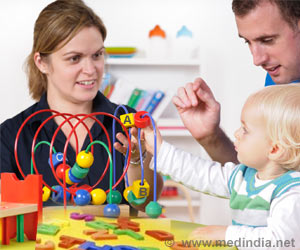Children think that adults spend their time worrying that they should know the answers to everything. But children do not expect adults to always have all the answers. Children see and accept adult failings and seek to contribute to social world.

‘Children do not always think that adult knowledge is superior, just because adults have been through childhood, are older, or have been to school. Children feel a huge importance in adults recognizing their achievements.’
Read More..




Dr Maynard and colleagues Sarah Barton and Kayleigh Rivett asked Oscar and some friends to create a series of interview questions they could ask each other, about their views on adult knowledge and decision making - the first time this is thought to have been done for a peer reviewed research paper. Although there have been many projects where children have actively participated in research, the authors are not aware of other studies where children have taken the lead from the original idea, through to peer-reviewed publication.Read More..
The results have just appeared in the Journal of Qualitative Research in Psychology (July 2020), with the children listed as co-authors of the report. It finds that children think adults spend their time worrying that they should know the answers to everything, but the young people who took part in the research don't believe they should feel like this.
The young researchers also reported feeling a huge importance in adults recognizing their achievements. The group as a whole was very frustrated by knowing a right answer, but not being able to show it. They cited occasions when teachers picked other students to answer a question, and didn't give them a chance to show they had a correct response. They related this to the constant messages they receive from media and school about striving for perfection in their self image, bodies, and learning expectations. Adult acknowledgement seems to reassure children they are on the right track to meet the very high expectations surrounding them.
The entire group argued that adults complain too much about the new generation's attitude to digital devices and their online activity. They urge adults to listen more to them about what it is like to have been immersed in new technology since birth, rather than impose parental views based on a childhood without it. Dr Maynard analysed these responses, and a feeling from the group that, despite a desire to do so, they felt unable to stop constantly using their phones because they would "feel left out".
Dr Maynard said: "The children presented the concept of phones and social media as being 'just there', so now they have to use them. We interpreted this as the adult generation having created the assessment pressures, and the presence of social media and mobile phone based communication. Children did not invent these things. This led us to think that in this context, criticisms of children and young people being attached to their phones is somewhat unfair."
Advertisement
Ben: "adults... just need to realize they might have forgotten"
Advertisement
Harry: "just because they're older and they've already been to school, it doesn't mean they've paid attention in school"
Eve: "...because they say that... they were once a child too but because we're different I think we should be allowed to have our own opinions sometimes"
The report is seen as an excellent and a useful example of 'allyship' - a process of building relationships based on trust, consistency, and accountability. Dr Maynard is now recommending the approach to others in her field, noting that it has delivered rich and insightful findings from children who conclude: "If this childhood is different to yours, then listen to ours".
Source-Eurekalert








